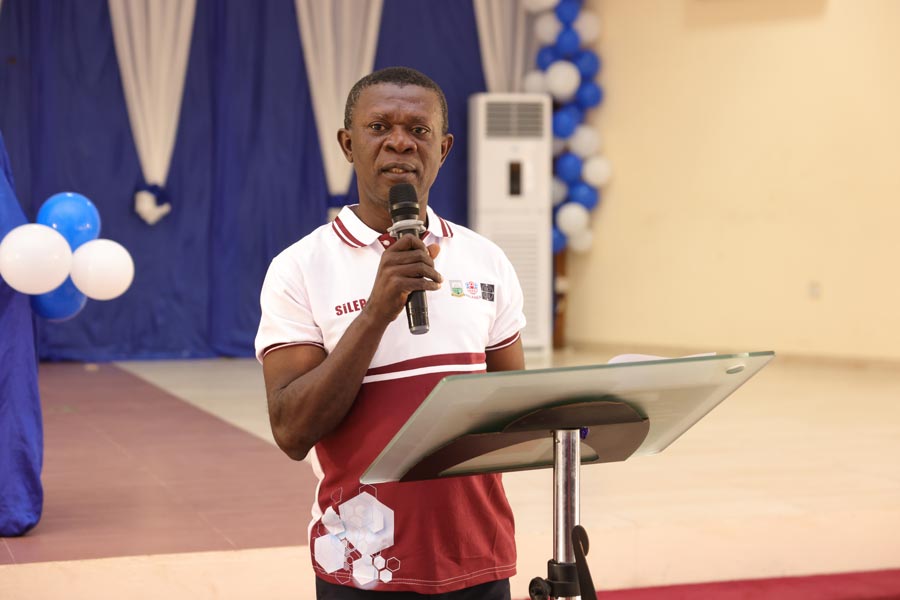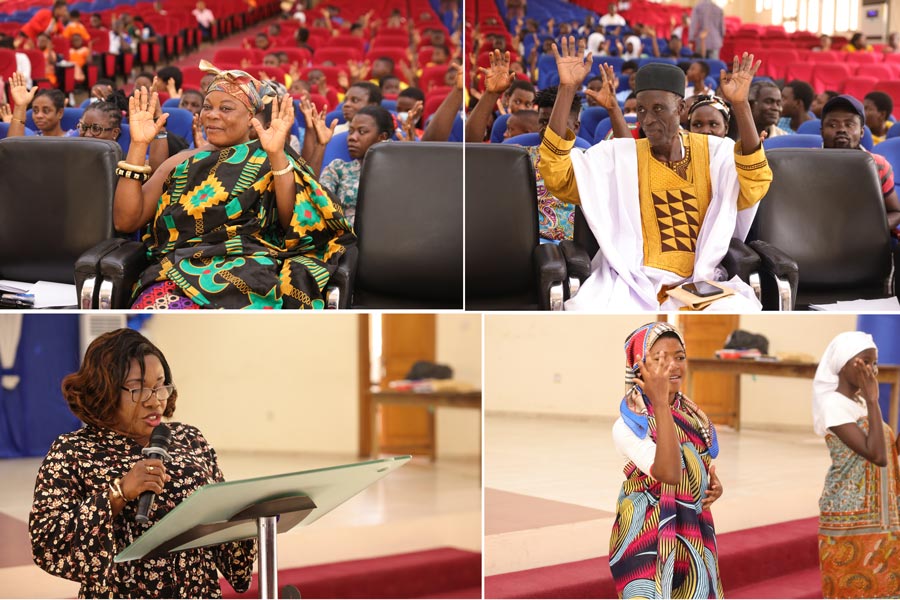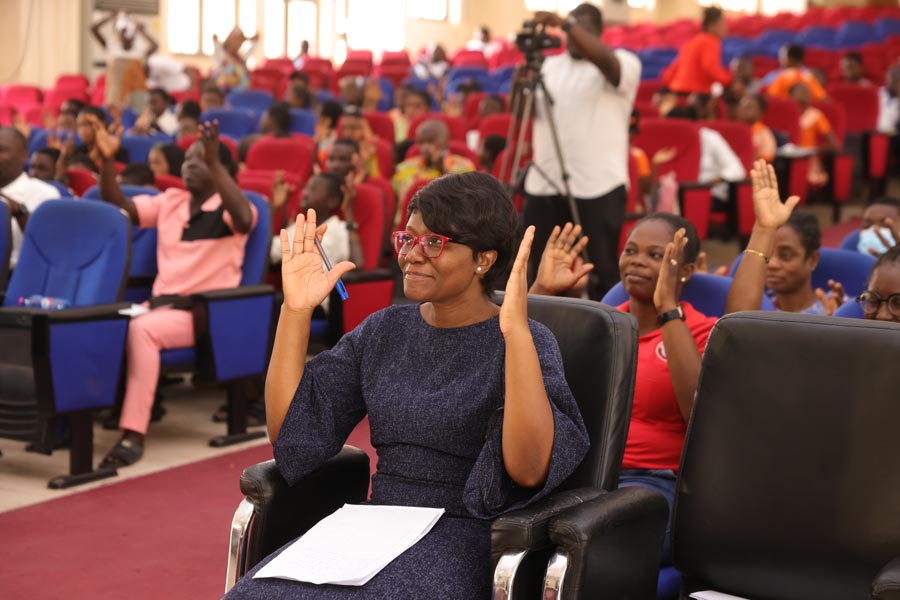The Office of Research, Innovation and Consultancy (ORIC) of the University of Mines and Technology (UMaT), in collaboration with the Sigh Language Empowerment (SILANEM) and Inclusive Tech Group launched the Sign Language Education Project (SILEP) in the Tarkwa-Nsuaem Municipality on Friday, 25th July 2025 at the University’s Main Auditorium.
The initiative seeks to break communication barriers and create equal opportunities in education, healthcare, justice, employment, and information access for Persons with Disability (PWDs) specifically, the deaf and hard of hearing. It also forms part of UMaT’s broader disability policy and aligns with Ghana’s Inclusive Education Policy (2015), the Disability Act (2006), the Pre-Tertiary Education Act (2020), and Sustainable Development Goal 4, which advocates inclusive and equitable quality education for all.

The Dean of ORIC, Professor Michael Affam who represented the Vice Chancellor, reaffirmed the University’s commitment to ensuring that persons with disabilities (PWDs) are not marginalised in academic and social life. He noted that while Ghana has strong legal frameworks for disability rights, there seem to be many challenges remain in implementing them.
“Many PWDs are not getting their due in society due to gaps between policy and practice. This project is one way of bridging that gap. As a university, we will consider introducing a short course in Sign Language Education so that students, staff, and the public can acquire skills to promote better integration in daily life,” Prof Affam noted
He commended SILANEM and the Inclusive Tech Group for their role in championing disability inclusion and commended AngloGold Ashanti Iduapriem Limited (AAIL) for sponsoring the establishment of an Inclusive Tech Laboratory at UMaT, as a hub for innovation in assistive technologies.
Under SILEP, sign language education will be rolled out in basic, secondary, and tertiary institutions. Professionals such as teachers, healthcare workers, court officials, law enforcement officers, and financial service providers will also receive training. By equipping both institutions and communities with sign language skills, the project aims to create an inclusive society where the Deaf community can participate fully in national development.
The launch was attended by key stakeholders including the traditional leaders, the District Education and Health Directorates, the Department of Social Welfare, the National Youth Authority, law enforcement agencies, the Deaf community, basic and senior high schools, and the general public.

Presentations at the event featured an overview of SILEP, demonstrations of sign language for students and the general public, and discussions on government policy direction for persons with disabilities. An open forum also provided participants the opportunity to share experiences and propose strategies for sustaining inclusive education.
The launch marks the beginning of a structured rollout of sign language education within Tarkwa and eventually across Ghana. The project is not only about teaching sign language but also about changing mindsets and building a culture of inclusion.
As the University positions itself to expand access to education and fulfil its commitments to its Disability Policy, the Sign Language Education Project is expected to serve as a model for how academia, civil society, government, and industry can come together to promote social equity and empower vulnerable groups.











